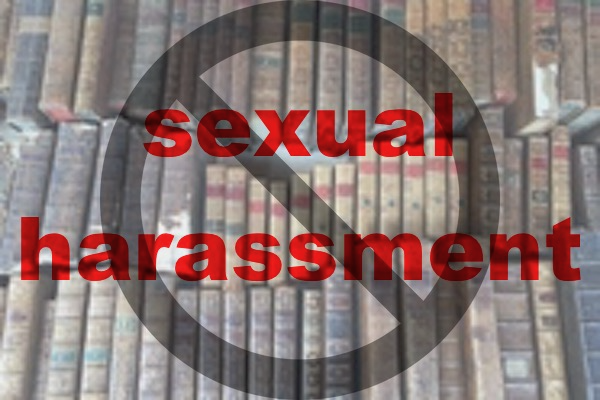Do Historians Have a Sexual Harassment Problem?

Related Link Sexual Harassment: AHA to Survey Its Members By Rick Shenkman
After the Harvey Weinstein scandal broke a columnist for the Chronicle of Higher Education wondered if academia has a sexual harassment problem. She asked readers to relate their personal stories. She quickly received more than 1800 replies. Now the total exceeds 1900. You can see them here laid out neatly in a Google spread sheet.
While the self-reports may or may not be representative – the columnist herself acknowledges that her readership is skewed given her general appeal to people in the humanities – the large number of complaints involving historians is stunning: 182. (The number includes scholars in history, art history, medieval history, and American Studies.) And that's just a rough estimate. The number may well be higher. Some contributors to the survey don't identify the discipline of the accused.
The accounts run the gamut from rape to sexual harassment. A freshman in college related how she had been "repeatedly told by one professor that I should use my 'hotness' to get ahead in class and my future work. As a 17 year old (I started college a year early), this was uncomfortable and scary."
A graduate student at the University of North Carolina at Chapel Hill working on her Masters told how her advisor had increasingly become "touchy feely." "He would place his hands on my hips, my waist, my shoulders when we were in his office. I did my best to dance away. In celebration of my MA defense, he took me to a local restaurant, where he kissed me on the lips. That evening, I emailed him to say that I had not consented to the kiss and did not want it to happen again. He admitted to it and replied that it was an 'unintended gesture.' But it was clearly planned, as he knew that I had left my husband mere weeks before and that I was in a seriously vulnerable position."
A PhD student in religious history at Drew University says she was manipulated into a sexual relationship by the second reader of her dissertation. "My primary adviser, and hence first reader, was on family leave, so this second reader became the person I was dependent upon for guidance, mentorship, and affirmation of my work. (also, my marriage was going downhill at the time, so I was pretty vulnerable) This second reader invited me out for drinks on a weekly basis, began to 'dis' my primary adviser and my third reader, and shared with me his marital problems and frustrations. I was flattered that he thought 'highly' enough of me to share these confidences and to be so honest with me - and as a clergy person, I was easily drawn in to his need to disclose and share his 'troubles.' This ultimately led to a sexual relationship while at a conference in England - after my dissertation was turned in, but before my defense. He could have waited to screw me until after the defense - the fact that he didn't demonstrates the power play involved. I wound up utterly 'smitten' (think Monica Lewinsky, here) and also became physically ill - developing ulcerative colitis."
And on and on it goes, one dreary, horrifying story after another. No story was more disturbing than this one by a lecturer at the University of Tennessee, Knoxville: "I strongly suspect that a colleague placed some kind of 'date rape' drug in my drink during a social gathering. While I am now in recovery, I am a long-time substance abuser and alcoholic. I could tell from the effects of the drink that I did not only have alcohol in my system. I went home immediately. This colleague had constantly subjected me to crude, sexual, and degrading comments, as well as multiple sexual propositions."
Until now stories like this have mostly been hidden from public view. No more. But how big is the problem? And what will be done about it? The American Historical Association is addressing the issue at this week's annual convention. The session, "Historians and Sexual Harassment: The Challenge for the AHA," will be held Saturday morning from 10:30 a.m. to noon in the Roosevelt Room 5 (Marriott Wardman Park, Exhibition Level). Cornell's Mary Beth Norton, the incoming president of the AHA, will chair. Members of the panel include: Catherine Clinton (University of Texas at San Antonio), Marcy Norton (University of Pennsylvania), Katrin Schultheiss (George Washington University), and Tyler E. Stovall (University of California, Santa Cruz), the outgoing president of the AHA.